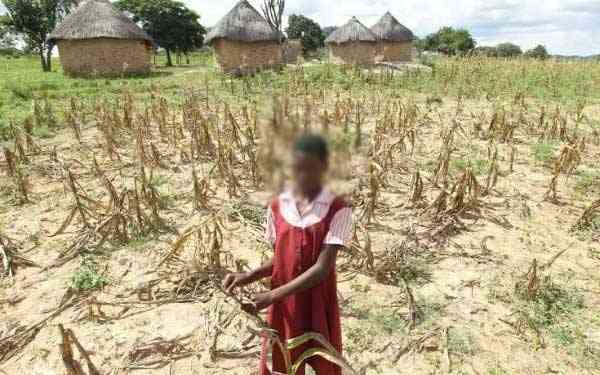
PERFECTING the art of resilience building needs to start with the local and inward focus before venturing into the unknown world of climate change adaptation.
While collaboration and inclusion of international best practices is key and instrumental in adding value to building capacity to climate action and justice, it is vital that communities build upon what they already know before they can talk of a carbon calculator.
It may not be surprising why many emerging economies’ adaptation priorities are falling short in adding value and achieving resilience, because of local communities having been reduced to second-class citizen, making sure that poverty is the norm.
While climate change adaptation is there to transform lives, building strong local institutions and infrastructure, local communities still have lots of catching up to do.
Instead of situating locally-led adaptation initiatives, using the language they know best, within the context of their culture and heritage, they spend more time learning new climate vocabulary and other terms for greenwashing. They are also forced to talk about the non-achievable net-zero emissions and selling carbon.
Local knowledge, shared experiences and best practices hold enormous potential for all adaptation initiatives, thereby facilitating a collective understanding of how local knowledge can build lives. In local initiatives, they know the landscapes, the physical terrain, the forests, the ecological complexion and stewardships, they have their own songs and dances, stories and participatory vocabularies, culture and worldviews, all designed to make sense and build societies.
Local voices are always united, knowledge is shared, monitored and driven by kinship while trust is key towards realising ecological value chains. Home-grown initiatives are not only at home without attachments to some global communities of practice but they are global within their local settings.
Home-grown initiatives are not prescriptive, command driven or monetised, they are sincere and intrinsic. Regrettably, now the African continent is caught up in a climate disinformation campaign designed to foreground and facilitate greenwashing. No wonder why the continent continues to go hungry because most imported adaptation initiatives have failed to transform livelihood options.
- Village Rhapsody: Pay teachers a living wage
- COP26 a washout? Don’t lose hope – here’s why
- Out & about: Bright sheds light on Vic Falls Carnival
- Village Rhapsody: Pay teachers a living wage
Keep Reading
With its local food systems already weakened, the continent has also lost the war on food sovereignty hence exotic diseases are on the rise. The traditional food support systems need to be revived, based on community-led landscape management practices while regulated by local governance initiatives. The revival of the food sovereignty systems is the future for sustainable food security and resilience building while efforts to document a wide variety of indigenous foods need to be strengthened by coming up with a comprehensive and dependable food inventory.
It is in this view that local agrobiodiversity should be respected and remain ecologically balanced to avoid climate change linked food stress. Locally driven adaptation practices which support the ecological knowledge systems and give rise to resilience to local food systems should not be lost to spirited disinformation efforts by the developed countries. Therefore, local adaptation knowledge is helpful and it normally leads to climate friendly adaptation practices.
All these can also work if rural communication systems are decolonised through communication ecology. Communication ecology is key in avoiding loss of rural livelihoods, environmental degradation and lack of sustainable markets for rural products. The idea is to create necessary conditions for improved food security, generate employment for themselves, safeguard the environment, increase income and realise climate resilience.
Whatever the case or obtaining situations, the significance of the local community-led climate change interventions remain supreme and the cornerstone of resilience building in this fast-changing climate. Successful adaptations initiated locally are simple, experiential, cost effective, sufficiently engaging and poised to deliver. The top-down pathways are always inclusive or driven by community concerns and underlying needs at the centre of their problems not symptoms emanating from real concerns. Therefore, in that line, communities are sometimes forced to address climate change symptoms rather than the real underlying problems bearing these symptoms. Top-down approaches, although significant, are too structural, rudimentary and somewhat rigid and they normally lead to knowledge and information gaps, at the same time leaving communities behind.
For adaptation solutions to be realised, local communities need to be engaged, consulted and mainstreamed into climate budgeting. Community inspired adaptations have the advantages of local ingredient informed by indigenous knowledge systems, worldviews, immediacy ownership and proximity to the impacts of climate change, and far away from the policy failures and duplication by policymakers. Community driven adaptations are not once-off events but rather ongoing, feedback oriented, people-centred and human specific, in ways that are easily recognised, appreciated and understood by the communities.
In developing countries, climate action is not a matter of choice if it does not bring quick financial gains at the expense of the long term and sustainable ones. In many developing countries, interdisciplinary climate action involvements are weak simply because climate scientists and other scientific technical experts, still think that climate change is their commodity and community of practice, ring-fenced and gatekept.
Peter Makwanya is a climate change communicator. He writes in his personal capacity and he can be contacted on: [email protected]






